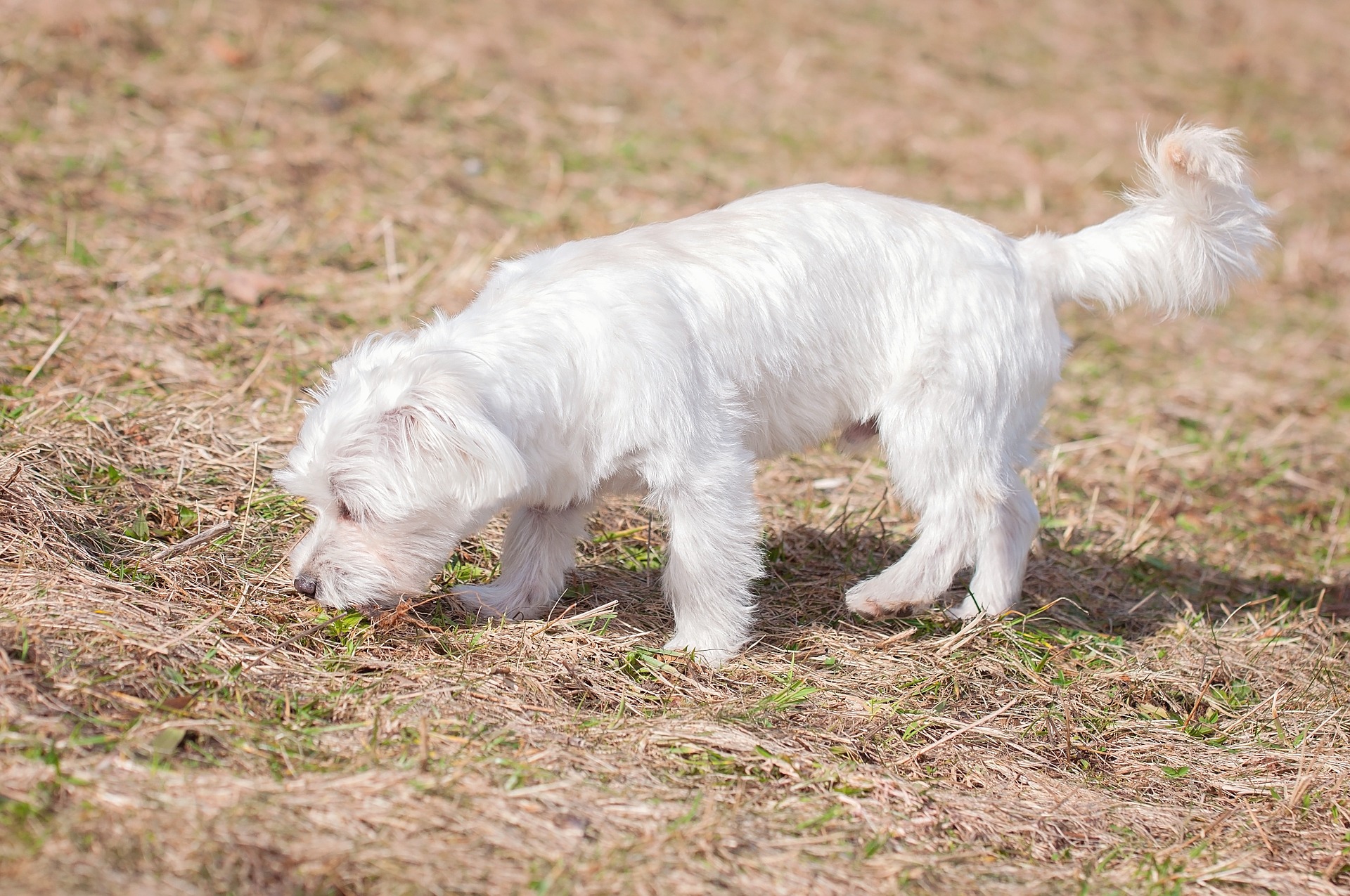If you’re asking yourself the question “why is my dog eating poop all of a sudden”, then I feel you, as do the thousands of other owners dealing with the exact same issue.
Despite the fact that dogs are regarded as intelligent animals, there’s still a huge portion of dogs who love nothing more than to indulge in their own (or other dogs) feces.
Why do they do it? …take your pick!
Ultimately, dogs will eat poop for multiple reasons, most of which are driven by normal canine instincts.
And although some dogs are naturally more inclined to this behavior than others, even the smartest dog can surprise you by sniffing out a fresh pile of dropping and chowing down.
Fortunately, the situation isn’t hopeless. Because while poop eating IS a serious concern (think parasites, viruses, and gastroenteritis), there are a few simple strategies you can use to put a stop to this unusual habit.
To get the ball rolling, I’d first recommend checking out the Brain Training For Dogs Program from Adrienne Farricelli. (see link below)
Once inside the program, Adrienne reveals what to do, but more importantly, what NOT to do when it comes to bringing behaviors like poop eating (among other bad habits) to an end.
Here’s the link if you’re interested: Click Here To Discover How To Finally Stop Your Dog’s Unwanted Poop Eating Habit, Eliminate Bad Behavior, And Create The Well-Behaved, Obedient Dog Of Your Dreams… Even If You’ve Tried & Failed Before!
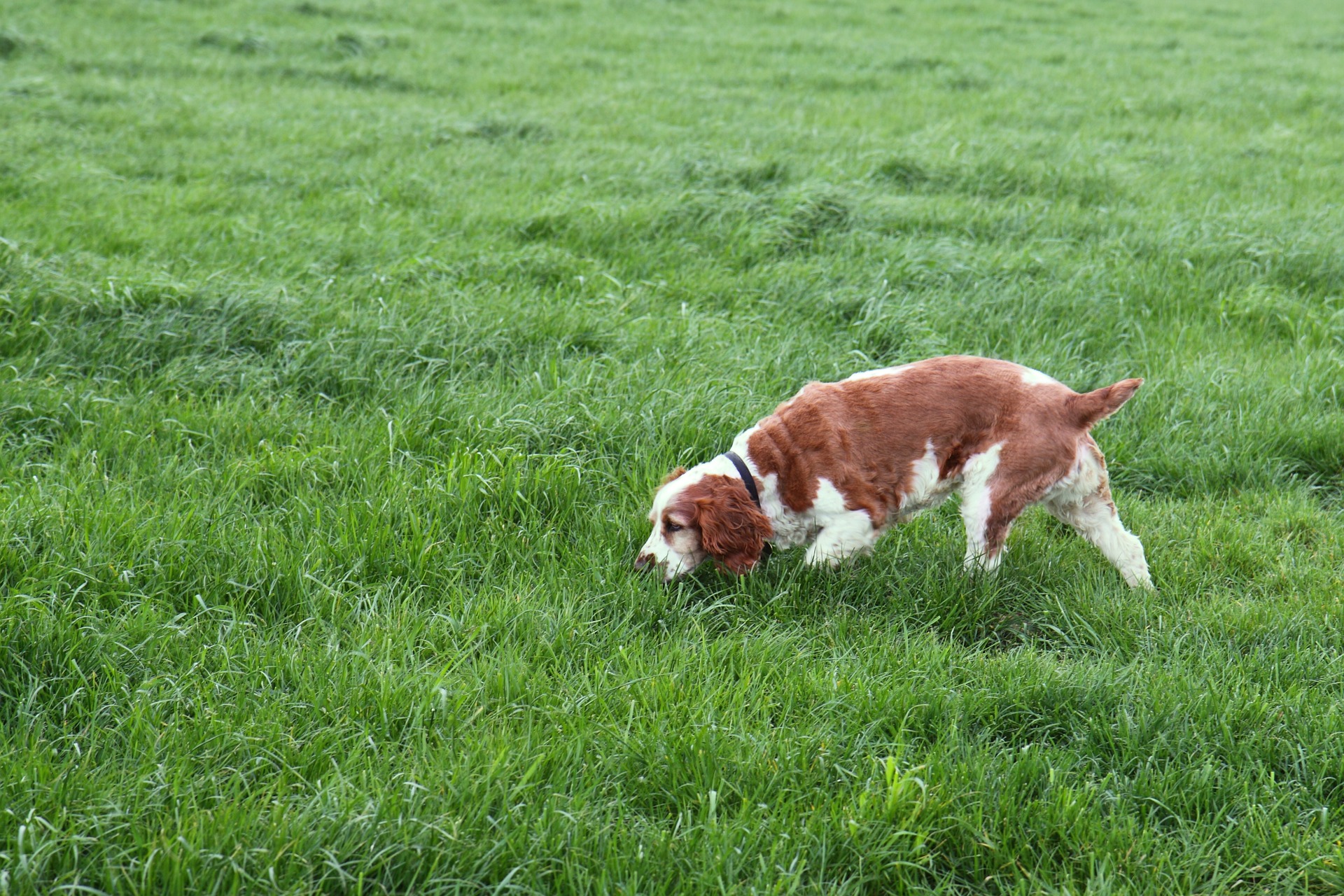
What Is Coprophagia? (Poop Eating)
Coprophagia is the scientific term for ‘poop eating’, and can be related to either ingesting their own or another animal’s waste.
It is a common trait among wild animals, and one that may dog behaviorists reckon is a genuinely ‘hardwired’ characteristic from the days when dogs ran wild in packs.
Despite being domesticated for generations, it just seems to be one of those habits so deeply ingrained that it still presents itself very frequently.
By no means should it be considered ‘bad behavior’ – it is actually natural.
But that doesn’t mean we have to like it!
Out in the wild, it is unusual for a mother not to eat her puppies poop.
She does so to try and determine the health and strength of her offspring, as well as to foster a familial/pack bond.
Puppies tend to follow by example, and while the mother will stop eating their poop once they are weaned, they may well consider eating feces to be normal behavior.
As they move into adulthood some dogs will just stop eating poop while others will continue to enthusiastically do so.
Obviously, there is no need for dogs of any age to eat any poop so it comes down to you – the pack leader – to encourage them to stop performing this unpleasant and potentially dangerous act.
Just remember that from the dog’s perspective, eating poop is entirely natural.
Scolding them for doing so is going to make them confused and may even be interpreted as encouraging them to do so.
As ever with any kind of canine training, keeping cool and consistent is the swifter way to achieving lasting results.
So Why Is My Dog Eating Poop All Of A Sudden?
So we’ve established that coprophagia can be an inherited or learned activity.
Basically, what that amounts to is a green light for saying “it’s OK to eat poop”.
Remember that from the dog’s perspective waste is a fascinating and intriguing thing, packed full of interesting scents and textures.
They do not equate poop with being unpleasant.
But what compels them to sometimes and seemingly out of the blue start to do so?
Many dogs seem to just suddenly pick up the habit seemingly at random, and when they do be aware that it may be an indication of a more serious health problem.
So if your dog is in middle, or later life and they suddenly start with this habit, it is sensible to take them to the vet.
They’ll likely want a sample of your dog’s feces to analyze to determine any potential problems your dog may have.
Scary as that can be, there are many other reasons why dogs may start to eat their own or other creatures droppings.
Here is a run-through of the most common.
#1 – Enzyme Deficiency
Let’s start with the scariest.
Moving on from the point mentioned above, poop eating may be indicative of an enzyme deficiency or pancreatic insufficiency.
A high number of dogs suffer from a deficiency in their digestive enzymes, and even more surprisingly poop just happens to be a very rich source.
While these enzymes are present in all waste, keep an eye out for dogs who have a particular fondness for rabbit droppings (they are the richest source of enzymes).
Droppings also retain high levels of B vitamins which tend to be severely lacking in non-reinforced kibble, explaining why dogs on dry diets tend to exhibit this behavior more frequently compared to those on wet food.
#2 – Hunger
As your dog grows it can be tricky to establish exactly how much they ought to be eating according to their weight and level of exercise.
There is a very thin line between over and underfeeding, so it is important to regularly weigh your dog and ideally establish a structured feeding plan agreed with your local veterinarian.
Just remember that even if your dog is on a perfect amount of food, timing is just as important as quantity.
Dogs left for long periods between meals are – just like us – going to want a snack to keep going.
If nothing else is at hand, then poop presents a convenient alternative.
Do not rule out the possibility that your dog may have contracted a parasite.
Worms are very common and can be easily treated and prevented.
If left unchecked, they will considerably reduce the amount of nutrition that your dog gains from their food – and consequently lead to a much greater chance that they will look to poop as a source of nutrients.
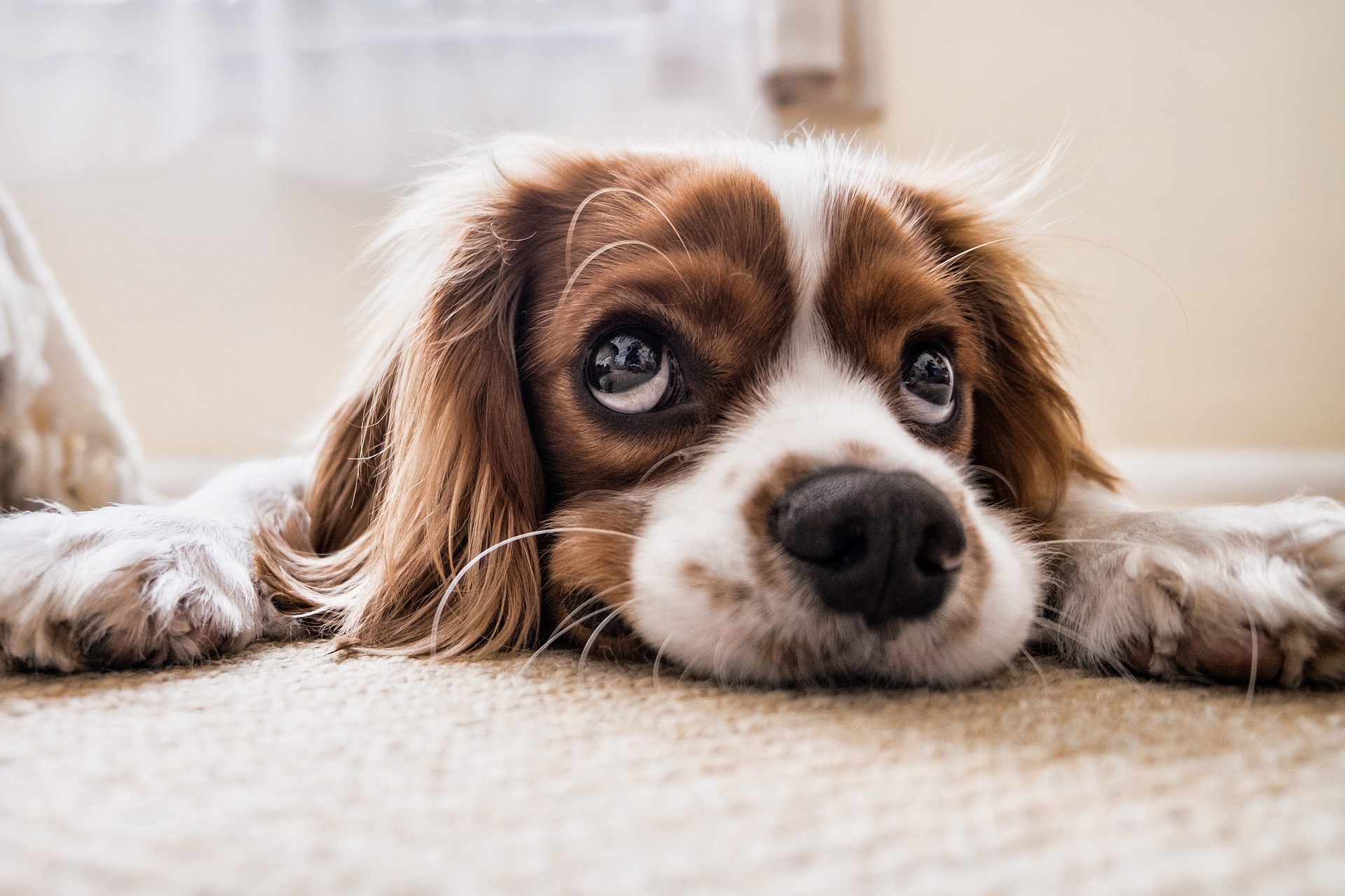
#3 – Boredom
While it may seem peculiar from our perspective, a bored dog is going to go to pretty extreme lengths to keep themselves occupied.
Dogs can become bored very quickly, and if they do not have enough distractions (toys, puzzles, humans etc) then it is going to considerably increase the likelihood that they will begin to eat waste.
As briefly mentioned already, poop – be it their own or ideally another animal’s – is full of interesting distractions when nothing else is at hand.
Be careful to keep a close eye on this if you also happen to keep cats.
There is not much a very bored dog will prefer than to enjoy some tasty cat droppings (that often retain plenty of undigested materials) straight from their litter tray.
#4 – Separation Anxiety
Separation anxiety can manifest itself in many ways.
And while it’s generally associated with howling, barking, destructive behavior. Coprophagia is also a common symptom.
So it’s worth considering this separately because, in this instance, it is a stress reaction.
Your dog may not be hungry or feel any benefits from doing so – they just engage in the behavior because it feels comforting.
It can be difficult to establish whether or not your dog is eating poop when going through separation anxiety (after all – you aren’t there).
So look out for warning signs such as the kitty litter tray being empty, or the smell of feces but not being able to find any present.
#5 – Confusion
When indoor training your puppy it is common for them to become confused and start to eat their poop the moment it has been expelled.
It can also develop – for unknown reasons – in older dogs left alone indoors for long periods.
It is important to address this as soon as it becomes apparent, as especially in juveniles it can become a habit that is very difficult to break once they have achieved adulthood.
Follow a good guide to effective indoor training and once again keep a close eye on your pooch’s toilet routine.
#6 – Attention Seeking
Alien as it may seem to us, it is not unknown (although thankfully rare) for some dogs who display some attention-seeking behavior to eat their poop to gain a reaction.
Should you find yourself in this situation, maintained a cool approach to the problem from the start is essential.
The last thing you want is for your puppy to go “Aha – that worked!” and make it a habit.
Check out information on how to eliminate neediness in your dog – most techniques for addressing the likes of barking and destructive behavior can also be used in this context.
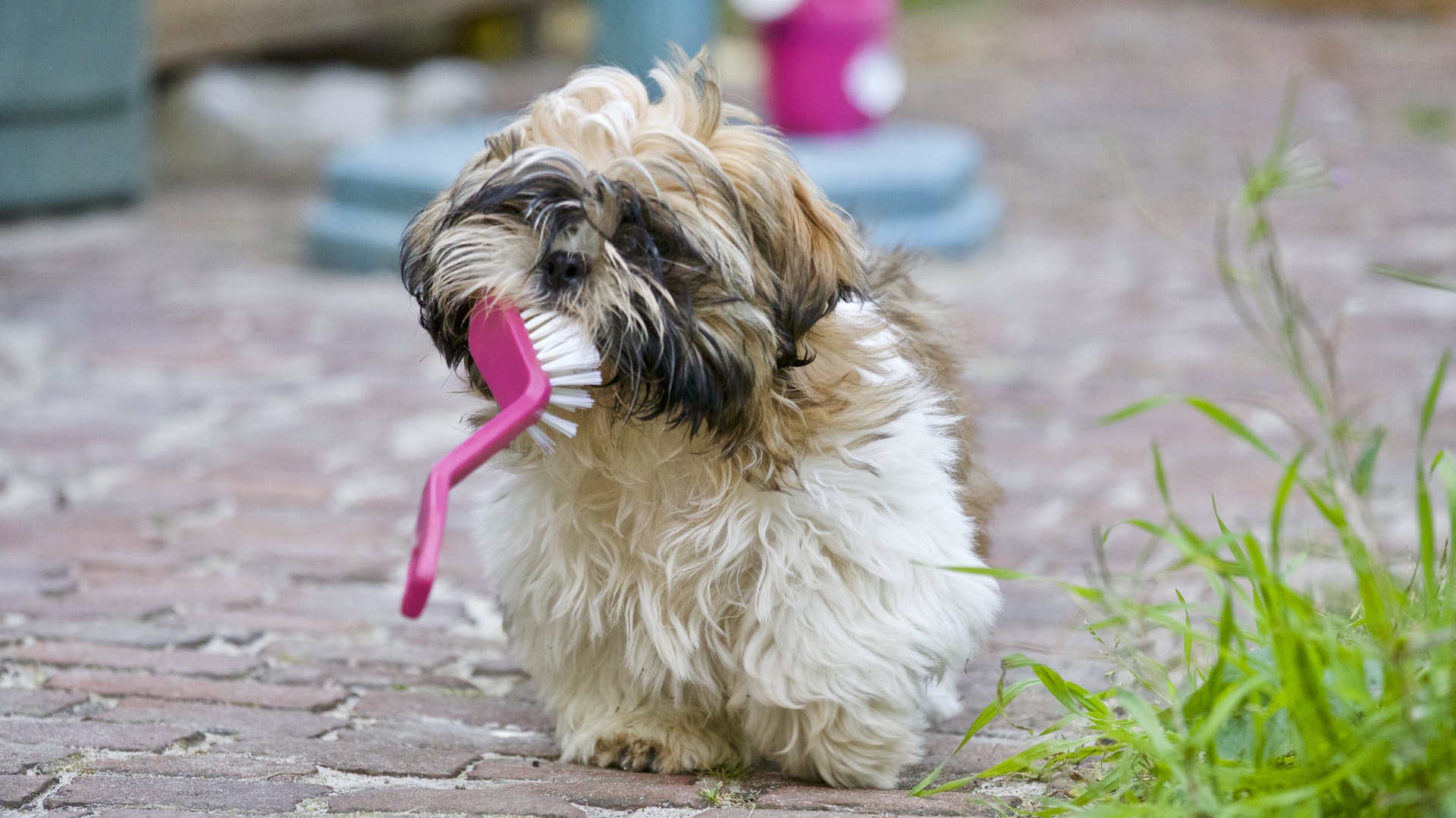
How To Quickly Stop Your Dog Eating Poop
OK – so how do we stop dogs from eating their own poop?
As we have seen there are many reasons why dogs may either instinctively display this trait or suddenly start doing so.
The best way to approach this problem is to not isolate either of these factors.
Your dog will naturally be pretty openminded about eating feces and will do so not just to express a problem or gain a reaction.
Or they may just do so because they like it.
Either way, it is a problem and needs to be trained out of them as soon as the issue materializes.
Thankfully, in the vast majority of cases it is pretty straightforward and something which any owner ought to be able to handle themselves.
#1 – Eliminate Dietary Causes
The first step to take is to make certain that Fido is getting an appropriate amount of nutrition.
Eliminate the possibility of worms or other medical issues by chatting to your vet and having them conduct a stool sample test.
If this raises an issue, then it is extremely straight forward to solve and with some luck that will solve the problem for good.
However, if your dog turns out to be in good health but still eats poop then it is time to take a look at their diet.
Just like humans, dogs have different standards of natural digestive capacity.
In layperson’s terms, some dogs are better at processing their food than others.
Take a look at what you are feeding your dog. And if not doing so already, switch over to a human standard protein based diet.
Ideally, one that is fresh and non-processed.
Sure, that will be a heck of a lot more expensive than kibble, but even over the short term, it may provide a clue to what the issue could be.
If after a week they have stopped eating poop, then it is likely their feed is not satisfying their nutritional requirements.
Chances are that this is because they do not have enough enzymes to break down their regular food.
Supplements are easily available (some foods have these already included but be careful to check the quantity is sufficient) that can be crumbled into their meals undetected.
But in many cases, helping your dog to properly take in their food will put them off eating poop.
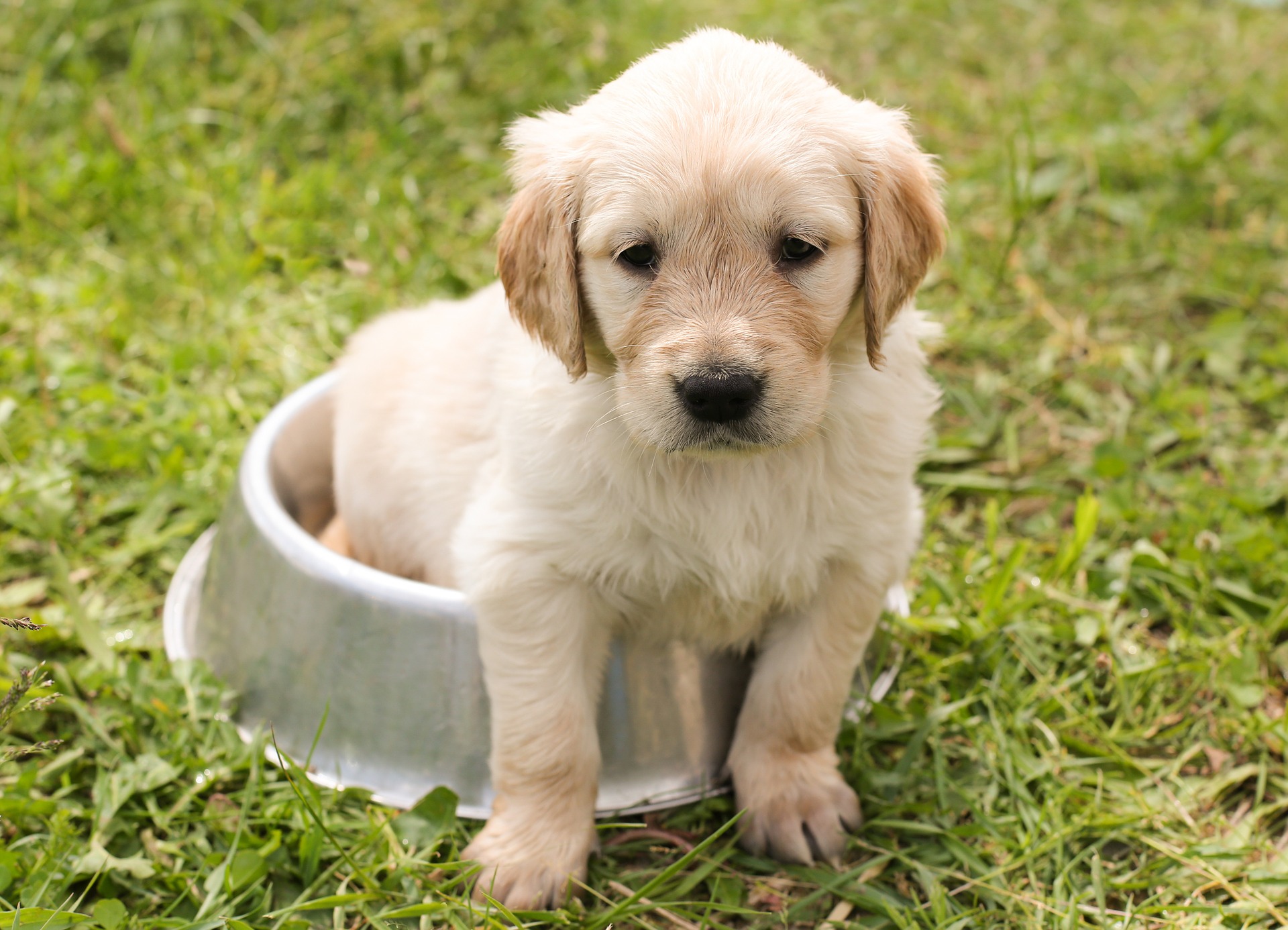
#2 – Remove The Problem!
It sounds easy and obvious but you’d be surprised how many dog owners somehow pass over this factor.
If your dog has made an expulsion – clean it up right away!
No poop = no eating poop!
That includes both indoors and yards, also do not forget the cat litter tray either.
The problem with this, of course, is that we cannot always know when or where the dog is going to the toilet, especially when they are left alone during the day.
Perform a thorough search around the house for any residual signs that they may have a secret pooping place where they gobble down their droppings right after they have been made.
Sometimes it can be surprisingly difficult to detect.
Clear any traces away from yard and lawns, and also should you keep cats try and find a way to isolate their litter tray from the dog.
A child gate that allow cats to slip between the bars is a good choice.
#3 – Use Deterrents
This may or may not work – it depends on your dog and how ‘invested’ they are with their poop eating habit.
Once your dog has been, sprinkle some dashes of Tabasco, lime juice or a similar ingredient that is unpleasant to dogs on their poo.
The idea is that they will go to take a bite and be put off because the smell will suggest it is toxic/contaminated and frankly not worth the effort or risk.
Dogs that choose to eat the poop anyway may well have a more serious underlying problem and that is going to involve a trip to your veterinarian to establish for sure.
Those who opt not to eat their poop are by no means immediately cured.
After all, there’s plenty more where that came from.
Give it a couple of weeks of spraying your chosen deterrent on their waste and see if they return to the habit afterward.
Bear in mind that they may not do so immediately, but could do in a few days, weeks or months.
Rather than spray their waste you could of course just clean it up!
If you decide to use specialist, over the counter deterrents just be sure to avoid those with agitation properties and MSG.
#4 – Keep Them Busy
Should your dog be eating poop due to behavioral problems then chances are that it will be boredom, anxiety/stress or a combination of both.
It is always essential to keep your dog well exercised and engage in scheduled and appropriate playtimes.
If your dog has developed a penchant for eating other animal’s droppings during walks, then keep them on the leash.
A good quality extendable can allow plenty of freedom for them to run and play within easy reach and recall.
Should you have a young dog/puppy, be sure to follow a structured early training program, and to reinforce positive behavior wherever it is deserved.
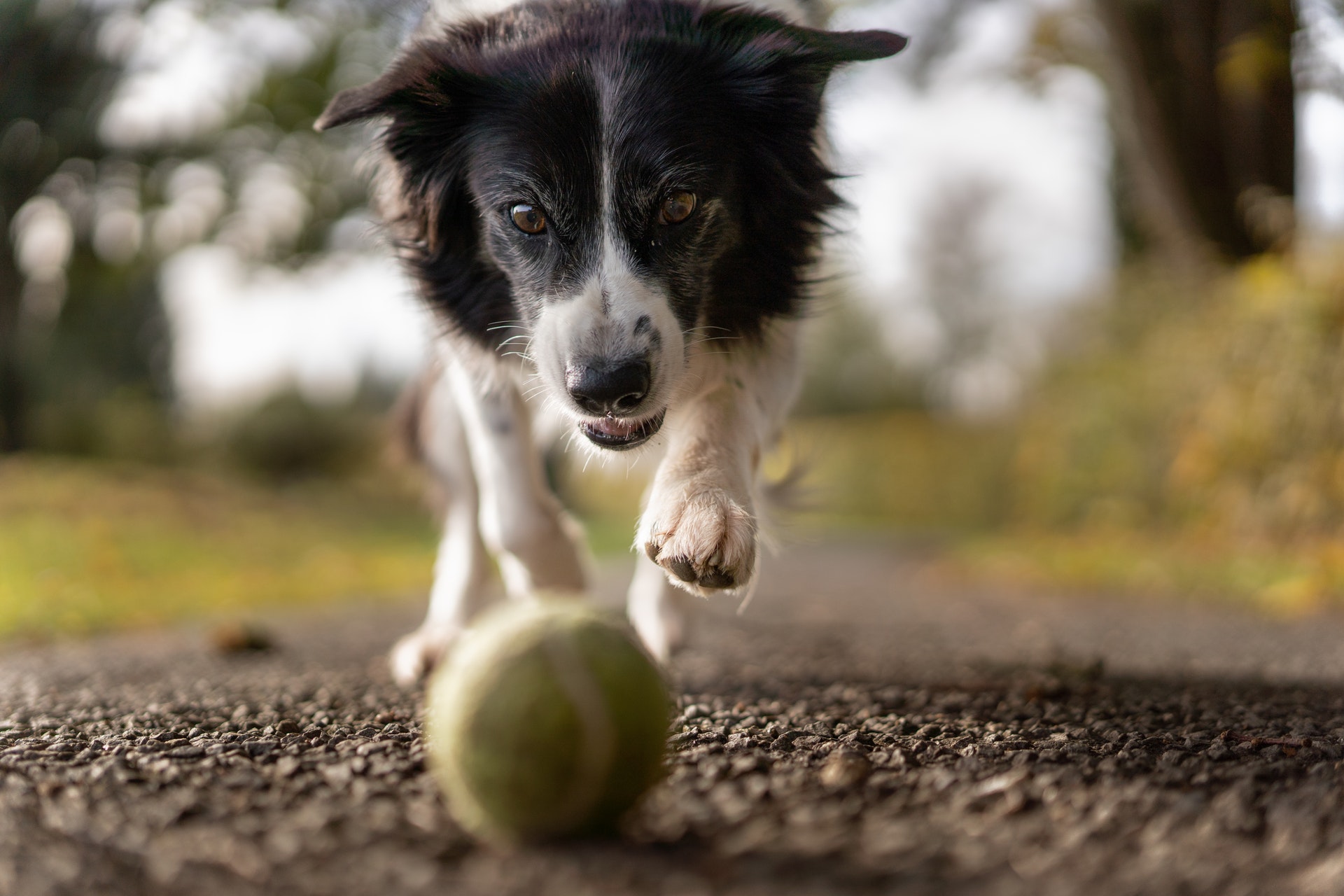
#5 – Incorporate Command Training
Every dog can be taught how to follow basic commands.
Be sure when training them to include “leave it”.
Every time you see your dog making suspicious sniffs near poop, command them in a firm yet non-aggressive tone to leave it alone.
It may take a while for them to understand (as does all aspects of this training) but by reinforcing their good behavior – in this case by not eating the poop – with tastier treats then it will become second nature.
In an ideal world, this is the best way to discourage your dog from engaging in coprophagia.
As with all aspects of canine training, the more you can combine into a consistent regime the better not only your understanding with the dog will be, but also the more obedient they will behave towards the rules.
Final Thoughts
So there we have everything most owners will need to know about understanding coprophagia and some handy pointers towards preventing and discouraging this unpleasant habit.
While dogs can generally speaking not suffer ill effects from eating poop, you never know for sure what the source animal may have eaten.
The best way to solve the problem is simply by incorporating basic obedience training and cleaning up after your dog.
It is all too easy to assume there is something inherently wrong with a dog who eats poop, but always remember that for them it is quite natural!
There is no need to become angry or disgusted at their doing so, and the better we understand that then the more effective remedial instruction is going to be.
Have you anything you’d like to share concerning your dog and/or coprophagia? Feel free to add your experiences and comments below…
